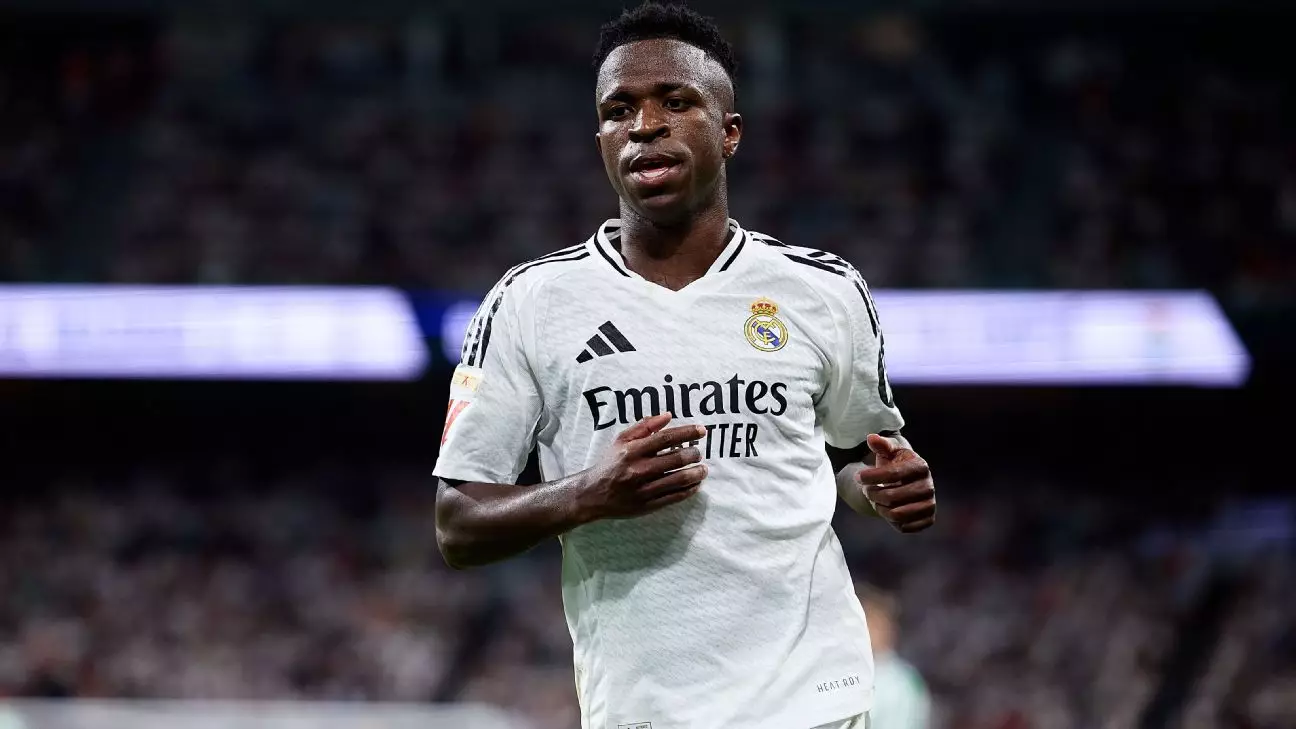Real Madrid and Brazil forward Vinícius Júnior stirred up controversy when he suggested that Spain should be stripped of its rights to host the 2030 World Cup if significant progress is not made regarding the issue of racism. His comments, made in an interview with CNN, shed light on the persistent problem of racial abuse in Spanish football. Vinícius emphasized the importance of creating a safe and inclusive environment for players, highlighting the need for change in the country’s stance on racism.
Following Vinícius’s remarks, there was a mixed reaction from the Spanish media and public. Some expressed disappointment at being collectively labeled as racist, while others acknowledged the existence of a minority of supporters who engage in discriminatory behavior. The debate surrounding racism in Spain was reignited, prompting discussions on the country’s progress in combating such behavior. The call for clarification from Vinícius brought attention to the complexities of addressing racism in a diverse society.
Vinícius clarified that his comments were not meant to generalize the entire population of Spain, but rather to focus on the impact of racial abuse by a select few. He emphasized the need for continuous improvement and emphasized the role of education and awareness in reducing incidents of racism. By sharing his personal experiences and insights, Vinícius brought attention to the challenges faced by players of color in the football industry.
As a prominent figure in the world of football, Vinícius’s advocacy for addressing racism has resonated globally. His willingness to speak out against discrimination and demand action from authorities has sparked important conversations about inclusivity and diversity in sports. By leveraging his platform to raise awareness, Vinícius has demonstrated the power of athletes in driving social change and holding institutions accountable for creating a fair and equitable playing field.
Looking ahead, Vinícius’s comments serve as a catalyst for further efforts to combat racism in football and beyond. The push for greater accountability and tangible measures to address discrimination is essential in fostering a welcoming environment for all players, regardless of their background. By engaging in discussions on race and equality, the football community can work towards building a more inclusive and respectful culture that celebrates diversity and values human dignity above all else.
Vinícius Júnior’s bold stance on racism in Spain has sparked a necessary dialogue on the lingering issue of discrimination in football. His advocacy for change and his commitment to promoting equality serve as a beacon of hope for a future where players can compete without fear of racial abuse. It is essential for stakeholders in the football industry to heed his call for action and work towards creating a more just and equitable environment for all individuals involved in the sport.

